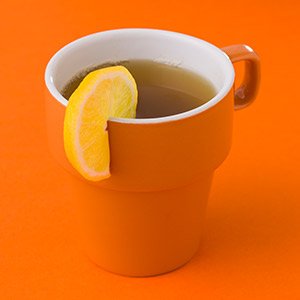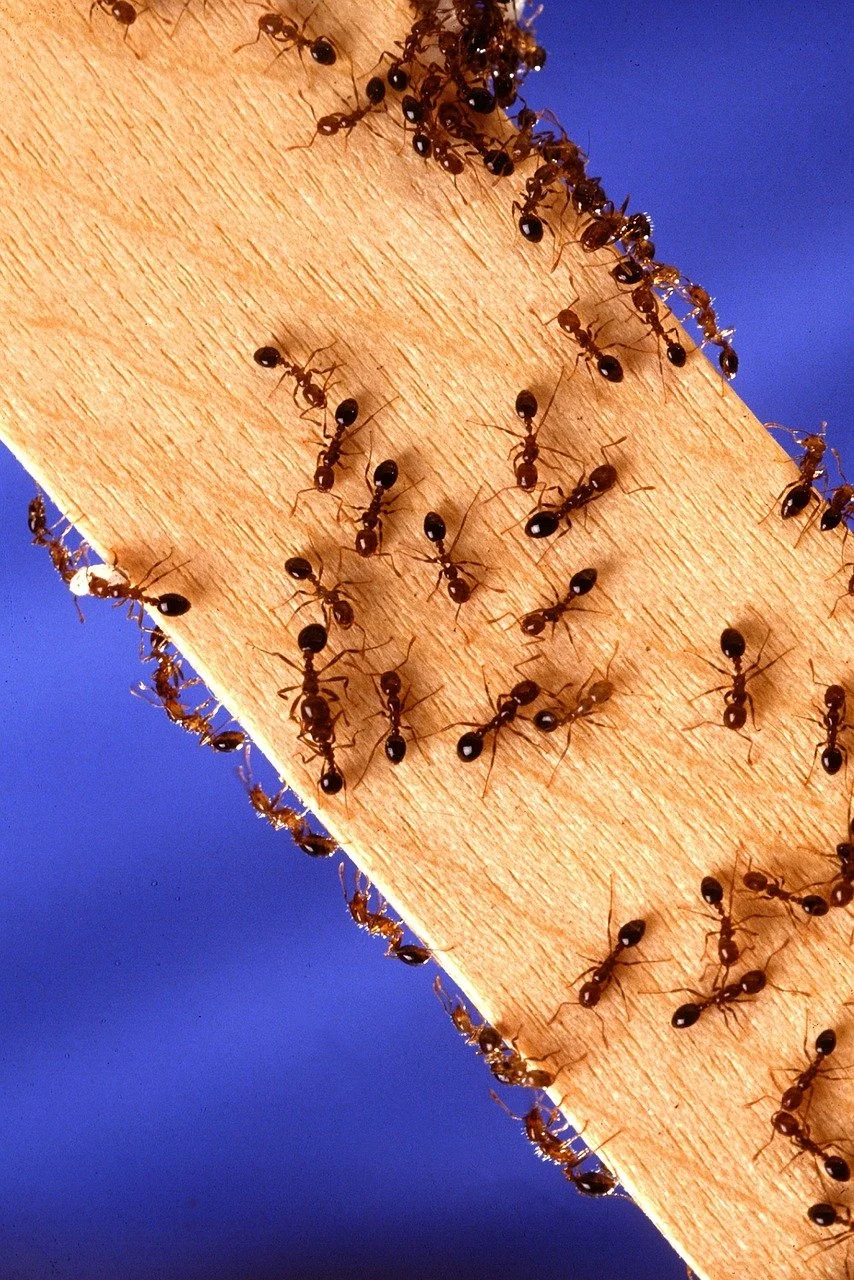Menopause and Allergies
As the body undergoes significant hormonal changes in menopause, it leads to a variety of symptoms you probably know about - tiresome hot flushes and mood swings and sleep problems. But did you know that this can also affect your immune system, increasing your risk of menopause allergies such as itching, coughing, and sneezing?
What causes menopause allergy reactions?
Fluctuating hormone levels impact your finely tuned immune system making it react differently to previously harmless allergens. Falling oestrogen levels in menopause bring sleep problems, fatigue, digestive issues and stress out the nervous system. The body defends itself by producing more histamine, the powerful chemical that leads to allergy symptoms. Common allergens pollen, dust, pets, and chemicals may now pose a problem, causing you to cough, sneeze, or wheeze as your immune system releases histamines to deal with the perceived threat.
What allergies are linked to menopause?
So, what are some of the hormone imbalance allergies linked to menopause?
Asthma
Asthma UK says, ‘some women find that their symptoms get worse and some women develop asthma before and after menopause’. If you arrive at the perimenopause door as an existing asthma sufferer, the impact of hormone fluctuations on your asthma should be discussed with your GP.
Eczema and Menopause
Depleting hormone levels may trigger eczema. Skin now becomes drier and more prone to irritation. There are a number of over-the-counter and prescription creams for eczema, or your GP can prescribe a corticosteroid cream that may help to relieve inflammation.
Sometimes the skin is itchy but there’s no rash. It feels like there’s an army of ants crawling around under your skin. This may be the seemingly secret menopause symptom, formication, or another hormone-triggered itchy skin condition. Watch our YouTube video on Formication.
Urticaria (hives) and Menopause
The emotional and physical stress of menopause may trigger hives (or nettle rash), and itchy lumps on the skin. Anti-histamines can help, or if you choose to take HRT for other symptoms, your hives should stay away.
Perimenopause and food Intolerance
If you’ve become sensitive to foods that you’ve previously had no problem with becoming allergic to certain food groups - check our symptoms section on Digestive Issues.
What can trigger menopause allergies?
If you know your triggers, you can take active steps to avoid them, lessening the chances of menopause allergies setting in.
Smoking
Cigarette smoke won’t cause asthma but could aggravate asthma symptoms during menopause.
Skin becomes rapidly thinner after menopause, the thickness of your skin decreases by 1.13% every year in the post-menopause phase, and smoking ages and dehydrates your skin potentially impacting skin irritations and allergies.
Food Sensitivity & Irritants
You may develop food intolerances. Women’s Health UK identifies hard-shelled nuts, dairy, wheat, soy, or foods containing sulphites, (a preservative found in wine, cider, beer, soft drinks, dried fruits, fruit yoghurts, fruit juices, and jams) as possible triggers for rashes, tightening of the chest or in extreme cases, breathing difficulties in menopause. Certain foods may also create digestive issues and bloating.
Food additives can add up to a whole heap of allergic reactions from mild to severe, including respiratory problems. Cooking from scratch helps to avoid these tricky encounters. See our guest blog by Emily who resolved her digestive problems with changes to her diet.
Caffeine
Caffeine’s a diuretic, making you wee more. You can then become dehydrated making your skin dry and sensitive to irritants.
Alcohol
Sadly, menopause can make you more sensitive to the effects of alcohol. The end-of-the-day pick-me-up glass of wine, or refreshing gin and tonic, may cause migraines, blotches or nausea. The coughs, sneezes and wheezes, brought on by hormone fluctuations can be aggravated by alcohol.
Cutting back, or cutting out, will also have a beneficial impact on other menopausal symptoms and your overall health. We’re just saying!
How to treat menopause allergies naturally?
Acupuncture & Chinese Herbal Medicine
Acupuncture looks at the needs of a person as a whole rather than dealing with single symptoms. Any treatment plan would cover allergies experienced. As acupuncture helps you to feel more relaxed, your immune system may get stronger, lessening allergic reactions. Consult ACTM – Association of Traditional Chinese Medicine and Acupuncture UK, for a recommended practitioner.
Homeopathy
Homeopathic medicine works by moderating the overactive immune system. It treats an individual’s distinctive allergic symptoms with a homeopathic principle of “treating like with like”, rather than offering a catch-all remedy for specific allergies.
*There is fierce debate about the effectiveness of homeopathy and whether homeopathic medicines comprise of too small a dose to have any effect. There has been plenty of research based on respiratory allergies. Consult a British Homeopathy Association practitioner.
Essential Oils & Aromatherapy
Essential oils used in aroma therapy may or may not treat some of the symptoms of asthma although breathing in the smell of the oils may trigger an allergic reaction. There’s insufficient research to say they do or don’t work, so check with your GP, or asthma clinic, before using for relieving asthma.
Otherwise, asthma aside, essential oils can be burnt in an oil burner, dropped onto a tissue, added to hot water to make a vapour, or added to a bath. Talk to an aromatherapist, or reputable supplier, to ensure that you’re using them safely.
Just Some of the Natural Allergy Remedies
Nettle: a natural anti-inflammatory, that prevents the body from producing histamines. Take it as a capsule, tincture or tea
Vitamin C, Calcium and Quercetum: will help to reduce histamine production
Vitamin E: may reduce inflammation when applied directly to the skin
Magnesium: helps raise fatty acid levels and fights stress
Black Cohosh and St John’s Wort: contain phytoestrogens, which have a weak oestrogen effect and may provide allergy relief.
*Whilst these are natural products, herbal supplements can have side effects and interact with other medications. Check with your doctor if they’re safe for you.
Medical menopause allergies treatment
Pharmacists can advise about the over-the-counter mild steroid creams and anti-histamines available for short-term use.
If symptoms continue, your doctor can prescribe stronger creams and medications, or refer you for allergen and histamine level tests. Any assistance you can get in identifying your allergen gremlins will help.
HRT and perimenopause allergies
If your allergies are hormone-related, HRT can help by raising the depleted hormone levels that have compromised your immune system and caused the allergies.
Although research is limited, a 2010 study found a small increased risk of developing asthma after taking oestrogen-only HRT. There was no effect on asthma risk in women taking a combined HRT including progesterone, the most commonly prescribed HRT. Your doctor can discuss your personal risk.
The usual caveat here, is that HRT is something to be discussed with your doctor. There are pros and cons to taking it and it’s for you and your doctor to decide whether it’s for you or not.
And the good news is….
Menopause allergies caused by hormonal shifts should pass, and making changes to your diet and lifestyle, laundry products, or cleansing regime should see symptoms improve.









Lichen sclerosus is most common in peri and post-menopausal but the cause is unclear. Lack of awareness leads to delays in diagnosis due to late presentation and lack of recognition of symptoms. What are the symptoms of lichen sclerosus in menopause? We share signs, treatments and one woman’s experience.